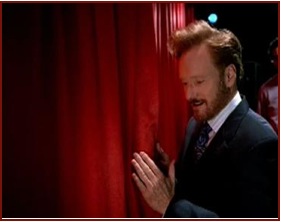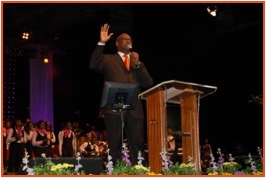Leadership Courage Series # 22
Why is it that 20% of the people in our churches are doing all the giving, all the serving, all the ministry?
 What if we who lead have actually established the culture that reinforces 80/20?
What if we who lead have actually established the culture that reinforces 80/20?
What are we communicating such that the vast majority of church dwellers feel great about coming, taking, and contributing nothing?
And, though you’re unaware of it, pastor, what if this is exactly what you want?
I invite you to ponder: what are you doing to perpetuate 80/20 in your congregation? And, since, according to Edwin Friedman in A Failure of Nerve “No one has ever gone from slavery to freedom with the slaveholders cheering them on” I fully expect to encounter your resistance to this claim: 80/20 is yet another evidence of the culture of cowardice that is alive and well in much of the American Church.
So, take a breath. Set your resistance aside, and gather your key leaders together. Lock yourselves in a conference room until you can identify at least ten ways your church communications, culture, and leadership promote and preserve 80/20.
Think about it.
 One: what do we model when, every time the doors are open, a relative handful minister to the many who simply spectate?
One: what do we model when, every time the doors are open, a relative handful minister to the many who simply spectate?
When a thousand gather for “worship” what do they see?
One preaches.
Another one does announcements.
One or two run the soundboard, show the videos, dim the lights.
Maybe a dozen play instruments or sing in a worship band. Or, maybe you have an organist. One organist…and a soloist. One soloist.
A couple dozen function as greeters and ushers.
And, several dozen teach the children—but that happens elsewhere… out of sight of most of the adults.
What you model reinforces a culture in which very few exercise their gifts and very many do next to nothing.
Don’t they?
Two: what expectations are communicated to those who gather at the weekend services?
Park here.
Don’t smoke in the building.
Sign in your kids. Take a pager.
Leave your coffee outside the sanctuary.
Give, if you want to.
Take part in this class, that event, the other small group experience.
You can boil down the “contract” you make with most of your folks this way: “You come back and we’ll take care of everything else.“
And, if they come back, they do exactly what you’ve asked: nothing.
And this often goes on for years…
Three: how frequently and how clearly do you teach your congregation about giving?
Funny, isn’t it? Jesus spoke more about money than any subject other than the Kingdom of God. Why? Because what you treasure reveals your heart. [Mt 6:21] Yet, most pastors dread speaking about finances. “People will think that all we care about is money” some of you say. So, you rarely teach the topic and how closely allied it is to all issues of the heart of your people…and yet you think about money all the time.
Don’t you?
See, if you’re in the business of packing the pews and parking lot [what I call the “religious education and entertainment business”], you’ll avoid all the topics that invite people to take offense (and reveal their values). Isn’t it strange that Jesus wasn’t smart enough to remember this, since he addressed the topic so very, very often? In fact, of you study his behavior, you’ll conclude that keeping the crowds coming back for more wasn’t nearly as important to Jesus as it is to us.
What was Jesus’ priority?
Why did Jesus say what he said? Why did he teach, tell the stories he told, and live among people the way he did? I assert that Jesus was in the people-development business. Jesus was making Kingdom citizens of people.  And, when it happened, these people lived in very distinct ways.
And, when it happened, these people lived in very distinct ways.
“Discipleship”, to Jesus, had everything to do with how people live, and why they do what they do. The heart-posture and motivation of one’s actions.
Discipleship began with the renovation of the heart… and that heart-posture expressed itself in a way-of-being in the world that was… well, remarkable. [Acts 16:7]
Yet, in North America, church dwellers’ way-of-being in society seems anything but remarkable.
Doesn’t it?
Funny, too, that when pastors teach about finances, giving almost always increases… at least for a time.
Ever wondered why cults get a following? I offer that one reason is that they communicate clear expectations of their members. Very rigorous expectations. Misguided, often. Theologically corrupt as well. Yet, people by the thousands “pony up” whatever is required. Maybe the cult leaders abuse the scriptures that you avoid…
Still, Jesus said: “If anyone will come after me, he (or she) must take up their cross daily and follow me.” [Mt 16:24, Mk 8:34] Yet, such preaching is rarely heard in the politically-correct Church of our day.
I wonder what prices we pay, as a result.
I wonder what prices American society is paying, too.
Don’t you?

One of the problems that feeds the Pareto Principle (80-20 rule) is our primary definition of “ministry” as that which happens at church services. Automatically this sets up all the things you describe.
What if our focus for “ministry” moved to thinking about what can take place off campus in the everyday place where people live, work and play? My experience is that shifting our primary view of “ministry” as that which happens “off campus” creates a very expanded set of roles people of all ages and both sexes can play as participants and not just spectators.
I’m not saying you have to necessarily destroy the worship/preaching/interpersonal ministry model of a “Sunday Service”, but you have to admit that it consumes a huge amount of time, talent and treasure and, as you point out, reinforces the gifts and contributions of a few. And yet, again and again, we church leaders keep making everything about attracting people to our services even though we say the church is not a building but rather the people of God in motion, etc.
However, if you break that paradigm by investing in ministry in the community and empowering people to really look for needs that can be met “off campus”, you have a much more biblical and much more involving paradigm for His Kingdom to come and His will to be done “on earth as it is in heaven”.
In the Vineyard, John Wimber was known for promoting the value: “everyone gets to play”. But that is only true if you are talking about something beyond what happens in our church services. Everyone does NOT get to play in a service by the very nature of the thing. That’s obvious. But if you recast your notions of ministry as that which happens in real life situations and relationships “out there”, then everyone truly does get to “play”. This has been one of the most blessed discoveries of my journey of the past couple years.
To see a recent example of this (what I now am calling “Sermon in the Mud”) from our experience you can read our blog at vineyardathome.blogspot.com This is just a sample of how this plays out on a neighborhood level. Many others are challenging the conventions of church campus-centered ministry in other ways. I, frankly, think it is pretty exciting to see.
What if we stopped trying to make everything about attracting people to us so we can do ministry to them on our turf where we are comfortable and initiated and they are (often) far less comfortable and relatively un-itiated. Let’s look for ways – often simple and natural ways – to be with people in their world (incarnational orientation) for the sake of the King and His Kingdom. I guarantee that the Pareto Principle will not survive that kind of focus!
I couldn’t agree more, Bill. Thank you for your contribution– not just to this conversation, but to the re-missionalization of the church. Thank you for breaking ground in being the church where the un-churched are open, comfortable, receptive, and curious– everywhere BUT at “church”. 🙂
Kirk, well put. Recently had a convo w an emerging leader in the entertainment industry about the 80/20. Something about it just didnt sit well. Your post really helped to articulate what I knew in my gut was a faulty assumption in my worldview. Thanks for living it out!